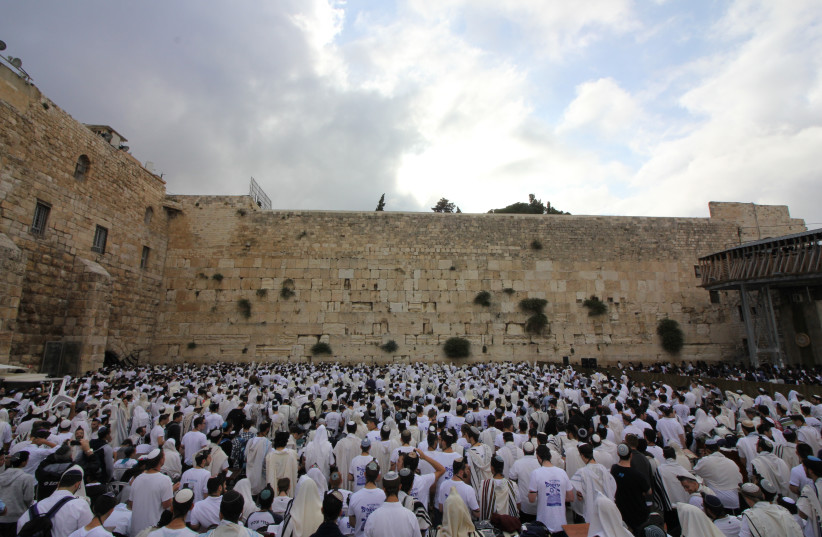The concept of prayer is different for everyone.
For my late husband, an Orthodox Jew all his life, it meant praying from a siddur, three times a day, the prescribed words, preferably in a minyan with nine other men. I don’t think spontaneous prayer ever entered his consciousness.
My approach to prayer is totally different, although there are four prayers I recite without fail every day.
When I wake up, I recite “Modeh Ani” to thank God for returning my soul and to remind myself that “the beginning of wisdom is fear of the Lord.”
I also say “Shema Yisrael,” probably the most important Jewish prayer.

And before I go to sleep, there are two prayers I say – and I cannot go to sleep without saying them. One is the 23rd Psalm, “The Lord Is My Shepherd,” simply because I like it; and the other one is what my mother taught me when I was five (87 years ago). She would hold my hand, and we would recite it together. It is a strange hodgepodge of English and mostly mispronounced Hebrew. Even though I now know the correct pronunciation, I still have to say it the way she taught it to me – I hope God understands!
The importance of prayer
Even before the people of Israel came into existence, men engaged in prayer. Perhaps the first time it was recorded is when Cain prayed to God (Gen. 4.13-14). “My punishment is too great to be pardoned. Behold You have driven me out this day from the face of the land....” His prayer was a confession of the murder of his brother Abel.
Prayer fulfills a human need. According to Rav Kook, “Prayer is an absolute necessity for us and for the entire world; it is the most legitimate of all pleasures. We pray more in distress than in joy, and sometimes the answer to our pleas is ‘no.’ I have come to believe that His ‘no’ is sometimes a providential ‘yes’ to something else. There are as many forms of prayer as there are states of the soul. Even when it is difficult, the wish to pray is a prayer in itself. It is not just the hope that God will hear us, but that we might also hear God.”
Of course, prayer is not just the possession of the Jews. Most religions involve prayer in some way. Mahatma Gandhi defined prayer as “a longing of the soul.” Mother Teresa believed that “in the silence of the heart, God speaks.... Souls of prayer are souls of great silence.”
Perhaps prayer’s greatest benefit is that it enables us to elevate and purify ourselves. [German Catholic theologian] Meister Eckhart wrote: “If the only prayer you ever say in your whole life is ‘Thank you,’ that would suffice. Sometimes prayer lets us acknowledge the presence of God in silence, without the need to offer words.”
In these traumatic times in Israel, prayer can help us endure the pain.
The writer is the author of 14 books. dwaysman@gmail.com
